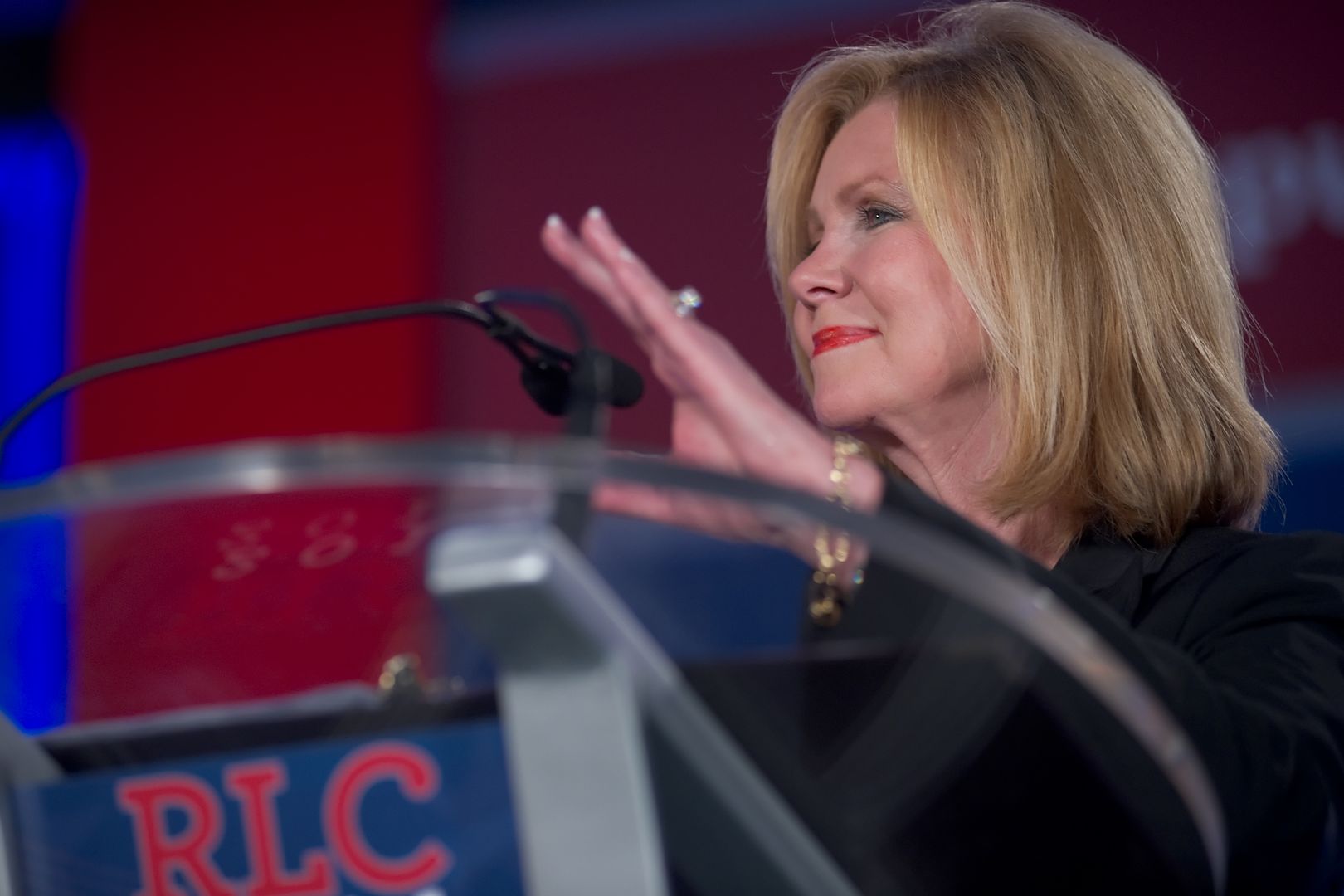Several primary races coming up in August will determine if Republican women candidates get to make history.
Rep. Marsha Blackburn of Tennessee is expected to be the Republican nominee for a seat in the U.S. Senate. She would be the first women elected to represent her state in the Senate. Fellow Tennessean Rep. Diane Black is vying to win her primary and hopes to go on to become the state's first woman governor.
Wisconsin state Sen. Leah Vukmir is running to become the first Republican woman to serve in the U.S. Senate from her state. Arizona Rep. Martha McSally and physician Kelli Ward are facing off in the Republican primary on Aug. 28 to be the GOP nominee for a seat in the U.S. Senate.
Rep. Kyrsten Sinema is the Democratic nominee and the winner will be Arizona's first female U.S. Senator.
But here's something interesting: none of these GOP candidates is emphasizing her gender as a reason to vote for her. Caitlin Huey-Burns of Real Clear Politics observes:
But the historic nature of their candidacies isn't a main feature, if one at all, of their campaigns in the way it has been for Democrats. "I don't put my focus on being the first," Blackburn told RealClearPolitics in an interview. "I think it's important to put the focus on why people should elect me, and on the record of accomplishment and the background that I bring to be of service. That's the story we prefer to tell."
Black already as a string of firsts:
When she won her House seat in 2002, Blackburn became the first woman elected to Congress from her state who didn't succeed her husband in office. And Black served as the first female chair of the state Senate GOP caucus. When she later went on to chair the House Budget Committee, she preferred to go by “chairman,” and Blackburn preferred to be addressed as “congressman.” "It is a title given to us in the Constitution," Black told the Columbia Daily Herald in an interview. "I don’t run as a candidate of gender. I run as a candidate that represents all people."
Other candidates have echoed that sentiment. "We don't play the identity politics game the way the left does," Ward told RCP. "We will have a woman who becomes the next senator from our great state, [but] people aren't as focused on gender identity as they are on getting someone who actually represents them."
Vukmir said that while she is excited about record number of women running for the upper chamber, "I’ve always said I’ve never looked at that as an issue.”
Martha McSally has brought up the gender issue–but in a way extremely different from the tact most frequently embraced by Democratic women:
McSally is one of the most vaunted Republican recruits this cycle, due in part to her barrier-breaking biography as the first female fighter pilot to fly a combat mission. But she is using the gender dynamic differently than Democratic colleagues. "I'm a fighter pilot and I talk like one. That's why I told Washington Republicans to grow a pair of ovaries and get the job done," McSally said in her campaign launch video, which highlighted her successful efforts to overturn a military rule that required her to wear a headscarf while stationed in Saudi Arabia.
McSally told RCP that being elected Arizona's first woman senator would be an honor, but said her experience making history as a fighter pilot taught her "that what really matters is how well you fly the plane and hit your targets."
While some strategists are encouraging female Republicans to talk more about the historic natures of their campaigns, it is refreshing to encounter candidates who are focused on issues rather than their own identities.


